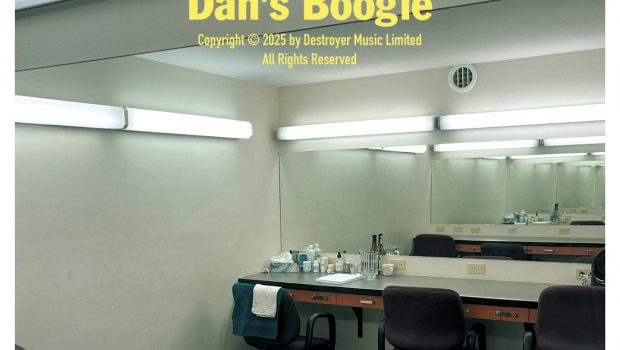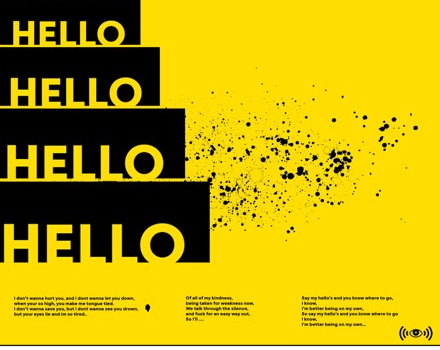-CENTRAL METHODIST HALL, MANCHESTER-
Being an enthusiastic reader of the liner notes of my favourite CDs as a kid, I remember seeing the SPARS codes that some of them had. The three-letter code, where each letter is either an A for Analogue or D for Digital, would indicate the type of equipment used in i) the recording, ii) the mixing and iii) the mastering of the music contained on the disc. I think that’s when I first started to become aware of the idea of mastering, and because the liner notes would invariably give credit to a person who did the mastering and nothing else, I realised that the skillset of a mastering engineer must be pretty unique.
Today I’m at the Central Methodist Hall, nicely located on Oldham Street close to the other eight venues that are hosting this year’s sold-out Off The Record festival and conference. Mastering engineer Kevin Tuffy, based at Pierce Rooms in London and having worked on projects for a prestigious list of artists including New Order, Rag’n’Bone Man and Stormzy, welcomes us to the Lincoln Room for his session entitled ‘The Evolution of Mastering’.
His studio’s website provides a nugget of insight into Tuffy’s ethos, which is described as being “informed by the need to retain the character and charm of analogue, whilst utilising the pinpoint precision of digital technology, in order to deliver records that sound vibrant, immersive and dynamic”. Whilst I haven’t actually listened to any of the records that Tuffy has worked on, that description certainly makes me want to do so.
A youthful audience has gathered and seated, and with the room just about full, Tuffy is using a slideshow and a wireless mic for his presentation. He wastes no time in addressing what he calls the mythology and shroud of mystery around mastering. For many of us, regardless of whether or not we record our own songs at home or hang out in music studios for a living, there is certainly something alluring and magical about the creation of a record.
When it comes to defining what mastering actually is, Tuffy points out that various engineers will see things from different angles, and he offers a few alternative definitions he has heard from industry colleagues, but when he himself thinks of the work he does, he considers it in terms of optimising the sound of a record for whichever format it’s going to be released on, whether this be vinyl, cassette, CD, download or streaming. In essence, mastering is the final adjustments to the sound of a recording before a physical version is manufactured or a digital version is uploaded to a server.
The human experience hopefully improves continuously from one generation to the next because of our understanding of history and learning from the mistakes and innovations of the past. Tuffy’s presentation embraces this concept fully, taking us on a journey from some of the early musical recordings more than a century ago to Fritz Pfleumer’s invention of the magnetophon tape machine in the 1930s and developments right through to the most important equipment in his current studio, namely the equalizers, compressors and computers. The session offers much to both excite the gearheads (the SM-51 mic, the Fairchild 660 compressor and Sontec EQ, anyone?) and capture the imagination of newcomers.
One of the most important tasks of the mastering engineer is to find the most desirable volume for a track, including level matching between tracks on an EP or album. Tuffy explains how it started to become fashionable in the mid-1990s to master records loud in what came to be known as The Loudness War, where artists asked their engineers to master as loudly as possible with the aim of their record overpowering the “competition” and grabbing the attention of listeners due to the sheer volume, exemplified by an album like (What’s the Story) Morning Glory by Oasis.
Tuffy highlights the negative impact of The Loudness War, which was a significant reduction in dynamic range (the difference in decibels between the quietest and loudest parts of a track) for a lot of pop music released in the last 20 years. In the worst examples of the trend, such as Death Magnetic by Metallica, the excessive compression causes distortion that can make a record unlistenable for many people. There were stories of Metallica fans complaining of terrible sound and wanting their money back.
As a result of The Loudness War, Tuffy reports that streaming companies are now increasingly speaking with engineers to request less use of compression in order to widen the dynamic range. Tuffy is generally in favour of this relatively recent trend, and he says that he doesn’t master loud just for the sake of it. If the RMS (Root-Mean-Square) is pushed too far, the recording will noticeably start to lose musicality.
I am interested in how vinyl records are mastered differently compared to digital releases, and after the session I ask Tuffy for his thoughts. It’s reassuring that Tuffy usually provides 24-bit masters (CDs are 16-bit) at the highest sample rate available for the cutting engineer to use, and the compression/limiting aspect of his chain is altered to give the cutting engineer a more dynamic master to cut from. After all, vinyl loves dynamics, he adds.
To me as a music fan who does the majority of listening on living-room speakers, it’s incredibly encouraging to learn that in the hands of the right mastering engineer a modern record I buy on vinyl is going to sound (at least theoretically) better than any digital release, which is quite right because it’s the most expensive format.
There’s talk these days among the record-buying public that, although we are in an era of vinyl resurgence, the heyday of vinyl was the 1960s/70s and so the theory is that there is essentially a lost generation that doesn’t have the same level of skills and knowledge. However, over the course of today’s session, the youthful Tuffy has proved that he has a deep appreciation of the history of mastering, which allows him to make choices that combine the best aspects of techniques old and new. Assuming Tuffy is not alone amongst the new generation of engineers, that’s pretty exciting for all the great music yet to come.
Kevin Tuffy: Official | Twitter

















